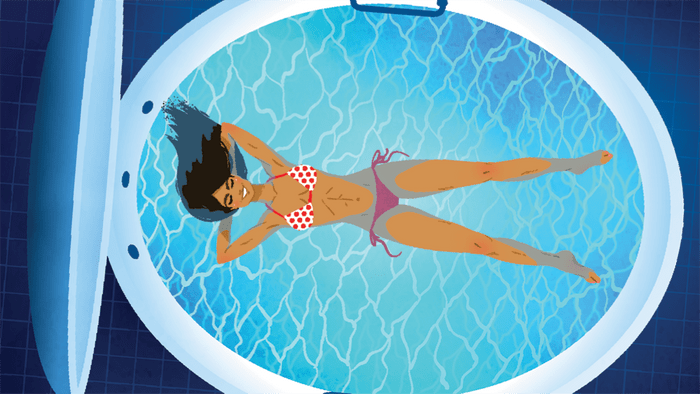
Health trends 2018: Are these buzzy health trends worth the hype?
There is no shortage of health trends in 2018 that claim to make you healthier. (Vagina steaming, anyone?) Thankfully Timothy Caulfield, a professor of health law and psychology and author of “Is Gwyneth Paltrow Wrong About Everything?” delivers his verdict on these buzzy offerings.

Health trends 2018: Will I benefit from an infrared sauna?
The trendy claim: These saunas help with everything from detoxification and weight loss to improved circulation and blood pressure.
Timothy Caulfield’s verdict: “There is some weak evidence to suggest that there may be cardiovascular and mental health benefits to saunas.

Health trends 2018: Is IV therapy safe?
The trendy claim: IV drips help treat certain conditions, relieve hangovers and offer more effective nutrient delivery for supplements and vitamins.
Timothy Caulfield’s verdict: “Not only is there no evidence that supplements provide benefits but an IV is also not a better way to hydrate. It’s more effective to drink fluids – your body is set up that way.”

Health trends 2018: Should I do a digital detox?
The trendy claim: Spending time away from plug-in accessories is effective at reducing stress, regaining focus and getting a better night’s sleep.
Timothy Caulfield’s verdict: “I hate the word “detox” because it’s always associated with nonsense, but in this case, I don’t mind it.”

Health trends 2018: Should I book myself a float spa treatment?
The trendy claim: Float spas boast benefits like improved blood circulation, pain management and relaxed muscles.
Timothy Caulfield’s verdict: “Though there aren’t any real physical benefits to floating, it’s interesting that there are so many trends emerging now that give us this clinical need to shut down. We need to give ourselves an excuse to relax.”

Health trends 2018: Is a salt spa worth the price?
The trendy claim: Sitting in a room filled with Himalayan salt creates an environment that can aid those with respiratory conditions, such as asthma, and help with cardiovascular and skin issues.
Timothy Caulfield’s verdict: “Full bunk. As of now, there’s no solid scientific evidence to support this therapy.”
